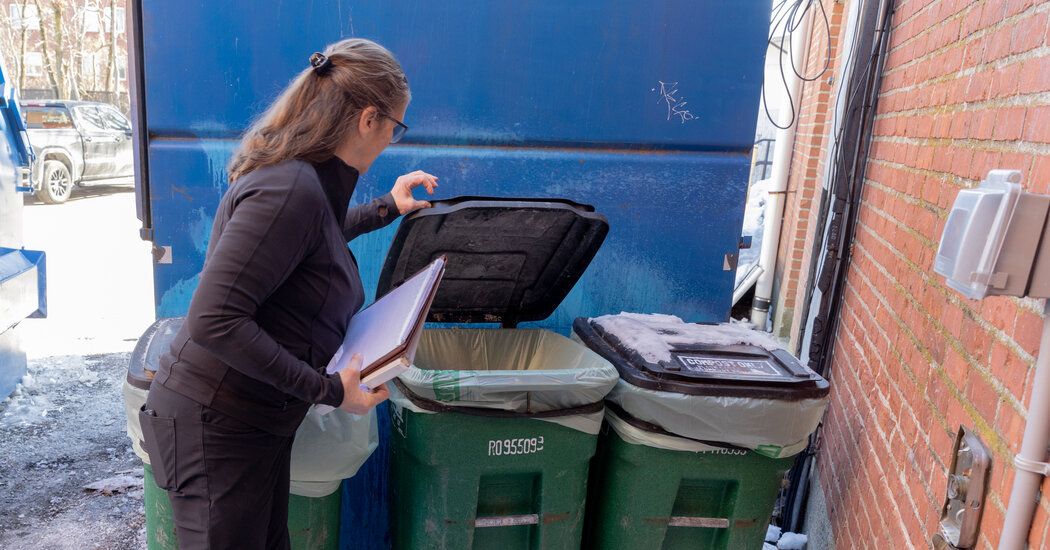Massachusetts Tackles Food Waste with Consultant’s Help
America faces a significant issue with food waste, as items like rotten tomatoes and pizza boxes end up in landfills, creating methane, a harmful greenhouse gas. Massachusetts addresses this with a regulation requiring businesses to divert food waste from dumpsters. To assist, the state employs Heather Billings, a practical and approachable consultant who helps businesses comply by assessing their waste management practices. For example, she visited Port Tavern in Newburyport to identify areas for improvement and suggested solutions like using smaller bins for food scraps and connecting the business with compost haulers and food donation entities.
Massachusetts’ Approach to Reducing Food Waste
Ms. Billings continued working with the Port Tavern, offering practical solutions to overcome the common waste management challenges that many restaurants face. Her interaction with the staff was not just about enforcing rules but also about educating and encouraging them on the potential benefits of sustainable practices. The idea was to integrate small yet effective changes—like setting up separate bins for compostable and non-compostable waste—that could significantly reduce landfill contributions. The cross-collaboration with local charities and compost services underscored the community-focused aspect of the initiative, emphasizing both environmental responsibility and social impact. As Ms. Billings progressed in her consultation efforts, she aimed to demonstrate how disciplined waste separation could streamline operations, lower costs, and contribute to a greener future, all while fostering a sense of shared responsibility among the staff and neighboring businesses.
Challenges of Food Waste Enforcement
Ms. Billings, with her experience and commitment, realizes the complexity of coordinating multiple businesses to effectively manage waste. Her approach often involves building relationships and offering continuous support to ensure that establishments like Port Tavern can successfully adopt new waste reduction practices. By fostering cooperation and communication among the different restaurants sharing the dumpster, she hopes to create a unified effort towards composting. Her goal is not only to help these businesses comply with state regulations but also to instill long-term sustainable habits.
Visual Reminders for Sustainable Waste Management
Another aspect to consider is the ripple effect of these initiatives on local communities. By implementing strategies to reduce food waste, not only do businesses potentially lower their operational costs, but they also foster a culture of environmental responsibility that can permeate through the neighborhoods. As businesses like the Port Tavern take steps to effectively manage their waste, they set an example for smaller establishments and individual residents, encouraging a broader adoption of sustainable practices. This community involvement can also lead to more opportunities for education and awareness around composting and recycling, further amplifying the impact of state regulations. This collaborative effort between businesses, the government, and local advocates like Ms. Billings is crucial in addressing the larger issue of food waste and environmental sustainability.
Encouraging Community Involvement in Food Waste Reduction
Ultimately, Massachusetts is setting an example by proactively addressing food waste with state regulations and supportive measures. While challenges remain, such as encouraging compliance and addressing shared waste systems, the state’s approach has already led to significant waste reduction and fostered the growth of new composting businesses. The work of consultants like Heather Billings is vital in guiding businesses toward more sustainable waste management practices. As these efforts continue, Massachusetts could inspire further progress and innovation in other regions, demonstrating that while complex, reducing food waste is an achievable and worthwhile goal.















Post Comment